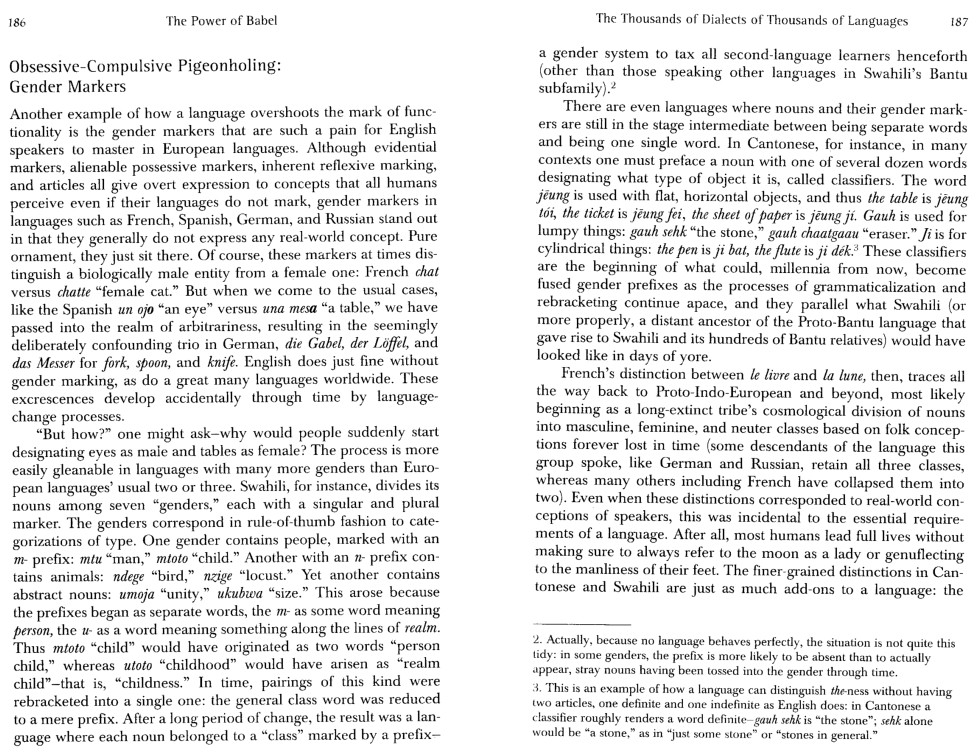Why do languages have gendered nouns? What are the problems that are solved by having gendered nouns?
-
1I'm voting to close this question as off-topic because it's impossible to answer.– curiousdannii ♦Commented Mar 17, 2016 at 0:48
-
@sumelic I've changed the title.– Count IblisCommented Mar 17, 2016 at 16:19
-
5Allows for coordination & agreement to free up word order. The better name for this is "noun classes" as the system of classification doesn't matter for getting the benefit of agreement. When noun classes exist you have 1 more clue for matching adjective to their nouns, matching pronouns to their referents. My kid used to say, "I saw him hit it with her." or "It hit it with it". In English, I barely know whats going on, more noun classes would make it clearer.– MatthewMartinCommented Mar 17, 2016 at 17:25
3 Answers
Properties of individual languages don't necessarily solve problems. Spanish children learn gender of nouns because it would be wrong to say "el aguo", and they learn what their parents say, who in turn learned what their parents said, an so on back to Latin and before.
"Gender" is just one version of noun class systems. It's not clear whether you mean "gender" in the narrow sense (masculine, feminine, neuter; or animate, inanimate), or in the broader sense that also includes for example Athabaskan shape, Niger-Congo classes which cover various semantic properties including. Gender systems seem to have developed historically (over millenia) from systems where the gender distinctions signaled some useful fact such as "is male", "is small", "is alive".
-
Indeed - I would point in this regard to Lakoff's "Women, fire and dagerous things" where the emergence of noun classes (such as gender) is treated in detail.– ElesharCommented Aug 30, 2016 at 20:35
John McWhorter PhD Linguistics (Stanford) expounds this, in The Power of Babel (2003).
When human language first evolved, perhaps people had not yet discovered the notion of integer, which allows you to generalize a single way of counting things of various sorts. Consequently, each sort of thing that had to be counted was classified as a separate gender.
-
It's certainly true that noun classifier systems and gender systems, where they exist, use many of the same categories, and appear to function in similar ways, most notably helping to unify noun phrases with agreement and other markings. Some cases surely come from frozen adpositions, but others could come from frozen classifiers just as well. And some get mixed into the heap of personal possession affixes, where they exist, and thence into verbal inflections.– jlawlerCommented Mar 17, 2016 at 23:46
-
@jlawler I didn't intend to distinguish between gender and noun classifiers, and in fact I had in mind some things about counting things in different ways I recalled from Brent Berlin's work on Tzeltal. I suppose that would involve classifiers and not gender, if one makes that distinction.– Greg LeeCommented Mar 18, 2016 at 1:23
